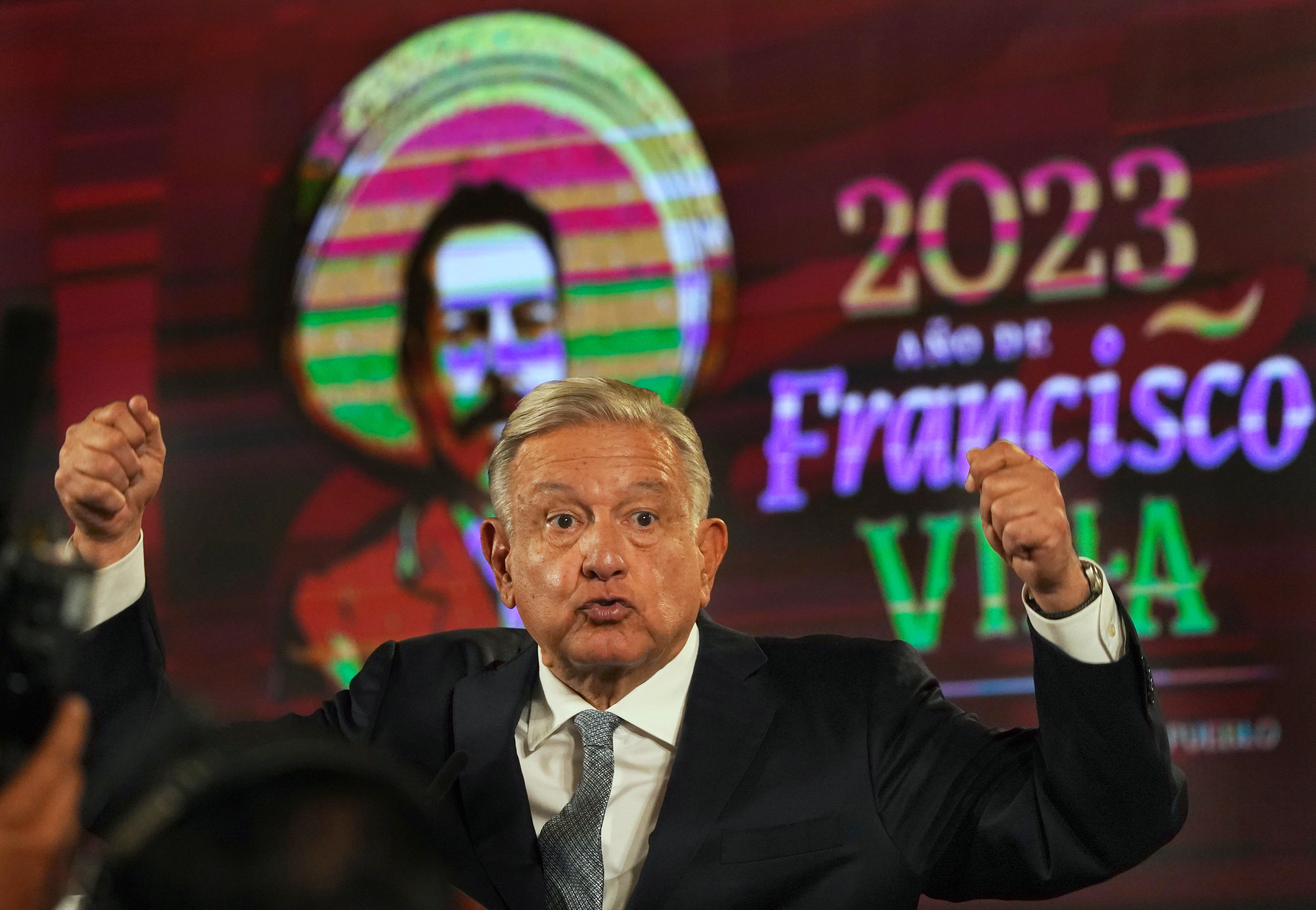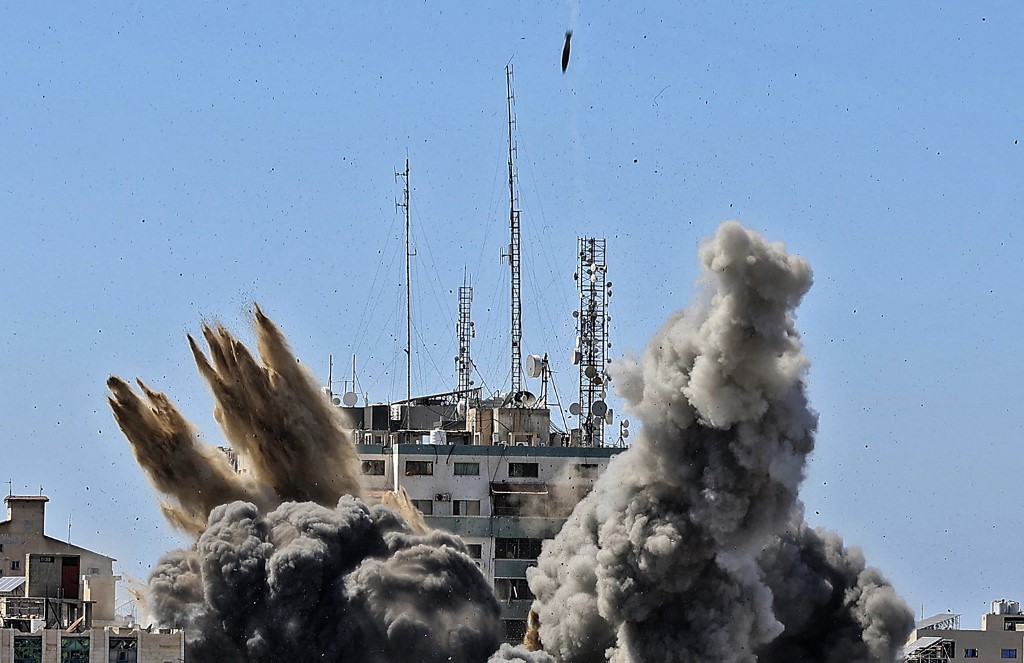Mexico's president says his country is more democratic than the United States
Via AP news wire

Mexico President
(Copyright 2023 The Associated Press. All rights reserved)
Mexico’s president said Tuesday his country is more democratic than the United States.
President Andrés Manuel López Obrador’s testy comments came after U.S. officials took note of heated public debate in Mexico over López Obrador’s recently approved electoral reforms, which critics allege could weaken Mexico's democracy. The reforms would cut spending for the country’s electoral authorities.
López Obrador angrily rejected any U.S. comment, even though U.S. State Department spokesman Ned Price was careful to say in a statement Monday that “We respect Mexico’s sovereignty.”
The Mexican president responded “there is more democracy in Mexico than could exist in the United States.”
“If they want to have a debate on this issue, let's do it," López Obrador said pugnaciously. "I have evidence to prove there is more liberty and democracy in our country.”
The Mexican president is notoriously touchy about criticism, whether it comes from human rights groups, non-governmental organizations, the press, or Mexican regulatory or oversight agencies.
Price said in a statement that “Today, in Mexico, we see a great debate on electoral reforms on the independence of electoral and judicial institutions that illustrates Mexico’s vibrant democracy."
"We respect Mexico’s sovereignty. We believe that a well-resourced, independent electoral system and respect for judicial independence support healthy democracy.”
At the root of the conflict are plans by López Obrador, which were approved last week by Mexico’s Senate, to cut salaries and funding for local election offices, and scale back training for citizens who operate and oversee polling stations. The changes would also reduce sanctions for candidates who fail to report campaign spending.
López Obrador denies the reforms are a threat to democracy and says criticism is elitist. He argues that the funds would be better spent on the poor.
Tens of thousands of people demonstrated over the weekend in Mexico City’s main plaza, calling the cuts a threat to democracy.






















